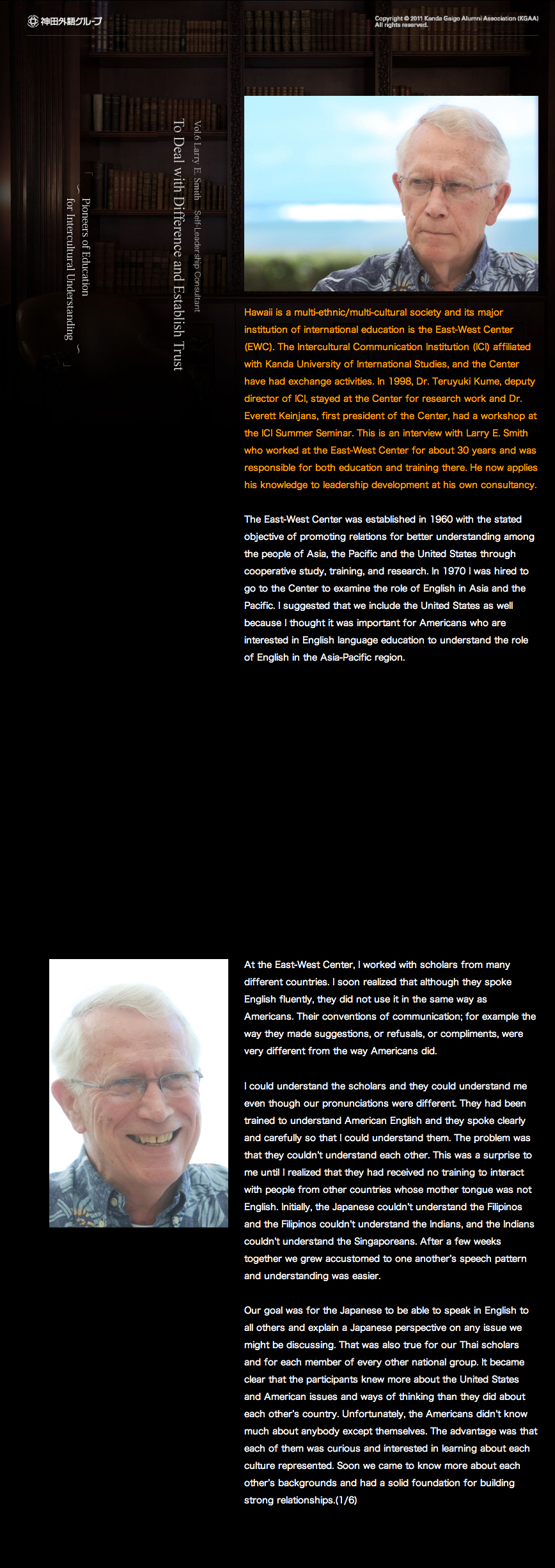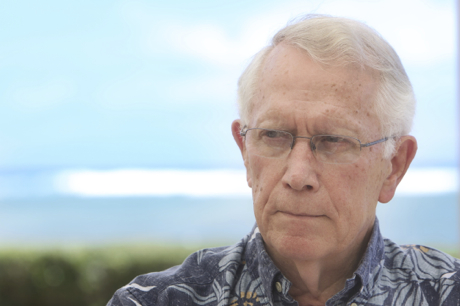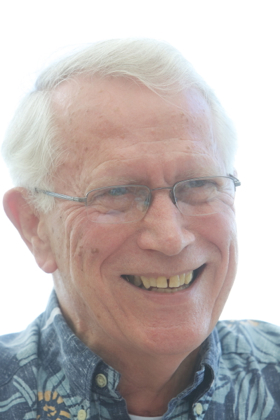

Copyright © 2011 Kanda Gaigo Alumni Association(KGAA). All rights reserved.

Hawaii is a multi-ethnic/multi-cultural society and its major institution of international education is the East-West Center (EWC). The Intercultural Communication Institution (ICI) affiliated with Kanda University of International Studies, and the Center have had exchange activities. In 1998, Dr. Teruyuki Kume, deputy director of ICI, stayed at the Center for research work and Dr. Everett Keinjans, first president of the Center, had a workshop at the ICI Summer Seminar. This is an interview with Larry E. Smith who worked at the East-West Center for about 30 years and was responsible for both education and training there. He now applies his knowledge to leadership development at his own consultancy.

The East-West Center was established in 1960 with the stated objective of promoting relations for better understanding among the people of Asia, the Pacific and the United States through cooperative study, training, and research. In 1970 I was hired to go to the Center to examine the role of English in Asia and the Pacific. I suggested that we include the United States as well because I thought it was important for Americans who are interested in English language education to understand the role of English in the Asia-Pacific region.
At the East-West Center, I worked with scholars from many different countries. I soon realized that although they spoke English fluently, they did not use it in the same way as Americans. Their conventions of communication; for example the way they made suggestions, or refusals, or compliments, were very different from the way Americans did.
I could understand the scholars and they could understand me even though our pronunciations were different. They had been trained to understand American English and they spoke clearly and carefully so that I could understand them. The problem was that they couldn’t understand each other. This was a surprise to me until I realized that they had received no training to interact with people from other countries whose mother tongue was not English. Initially, the Japanese couldn’t understand the Filipinos and the Filipinos couldn’t understand the Indians, and the Indians couldn’t understand the Singaporeans. After a few weeks together we grew accustomed to one another’s speech pattern and understanding was easier.
Our goal was for the Japanese to be able to speak in English to all others and explain a Japanese perspective on any issue we might be discussing. That was also true for our Thai scholars and for each member of every other national group. It became clear that the participants knew more about the United States and American issues and ways of thinking than they did about each other’s country. Unfortunately, the Americans didn’t know much about anybody except themselves. The advantage was that each of them was curious and interested in learning about each culture represented. Soon we came to know more about each other’s backgrounds and had a solid foundation for building strong relationships.(1/6)